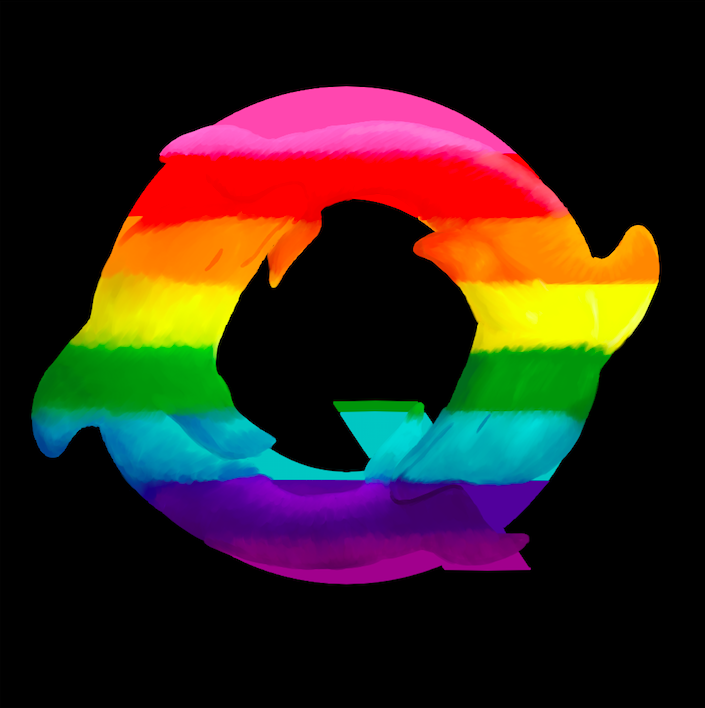Throughout history, leading up to modern society, heteronormativity has been preventing society from embracing open-mindedness – it serves as a safety net to fall back to for many. There lies a world with much more variety, however; a world with a wide scope of unique sexualities in which the LGBTQIA community embodies.
Close your eyes – try to visualize the face of a loved one, with a look of overwhelming anticipation. The moment when they openly expressed to you they were lesbian, gay, bisexual, transgender, queer, intersex, or asexual. Whether the amount of people you know who is part of this family, minuscule or enormous, every individual who has felt comfortable enough to confide in you matters. LGBTQIA rights have evolved, resulting in more acceptance for the community, but a barrier still lies between the members of this vast group and true equality.
Students who are a part of generation Z have many various manifestations of cultural and sub-cultural preferences to learn and embrace. Some of these ideologies are easier to accept than others, and among these cultural groups, the LGBTQIA community has been deplored by society since before its up-rise in 1924 when Henry Gerber first activated the group in Chicago. After the backlash that this personal preference received from the public, there was an aura of repression in accepting what a person feels and who they believe they are. This resentment and unwillingness has sunk its roots throughout the decades to lead up to the present. Yet there have been many significant events to help dilute this irrational disliking towards weird and unique lifestyle, such as June 26th of 2015, when gay marriage was legalized and on September 26th in 2014, when the UN Human Rights Council adopted a second resolution to sexual orientation and gender identity.
Today there are 21 states (and Washington D.C.) which explicitly prohibits discrimination based on sexual orientation and gender identity in employment. However, Georgia is one of 26 states which there are no explicit prohibitions for discrimination based on sexual orientation or gender identity in state law for employment. Despite that bleak news, Georgia is in a federal circuit with a ruling that explicitly interprets existing federal prohibition on sex discrimination to include discrimination based on sexual orientation and/or gender identity. This means that for the time being, there are no harsh rules detailing that discrimination in the workforce for sexual orientation and gender identity. In the meantime, we can hope to see some growing acceptance in workplaces and schools. South Forsyth is among one of those places where room can be made for improvement upon making itself more LGBTQIA friendly in classrooms and around the school.
There is a lack of awareness, however, about different types of sexualities, as well as gender dysphoria. From an inside perspective, people’s understanding of LGBTQIA affects the individuals in this community. We conducted a few interviews to obtain more insight, and collected passionate perspectives from different students around the school. As senior Courtney Smith suggested, the awareness about the LGBTQIA community is crucial.
“So one thing would be to be mindful of different gender pronouns, and then also be aware of different sexualities in general. Like you don’t have to be necessarily fully educated on everything in the queer community, but just being aware that there are different sexualities, besides gay and straight…will make kids feel a lot safer in the school, and just a lot more comfortable and willing to talk to people, willing to be open and know that ‘hey, my teacher isn’t queer-phobic, I can be safe with them and come to them if I have troubles with dysphoria, or people are being homophobic towards me, etc.”
Moreover, within schools around the U.S., along with various places around the world, teens do not treat the terms “gay”, “queer”, etc. with the respect they deserve. Most likely no one would casually walk around exclaiming, “you’re so straight”, or “that’s so heterosexual”. People should not be stereotyped, and are supposed to be treated fairly; the criteria should be based on their spirit as a whole, not by sexuality, gender, appearance, etc. Most times, there are obstacles that prevent individuals from speaking out against the rest of society, and to have their own opinions. Rather than sticking to heteronormativity as a safety zone, reality should be acknowledged – the LGBTQIA community is growing and should gradually be incorporated into modern societal culture.
